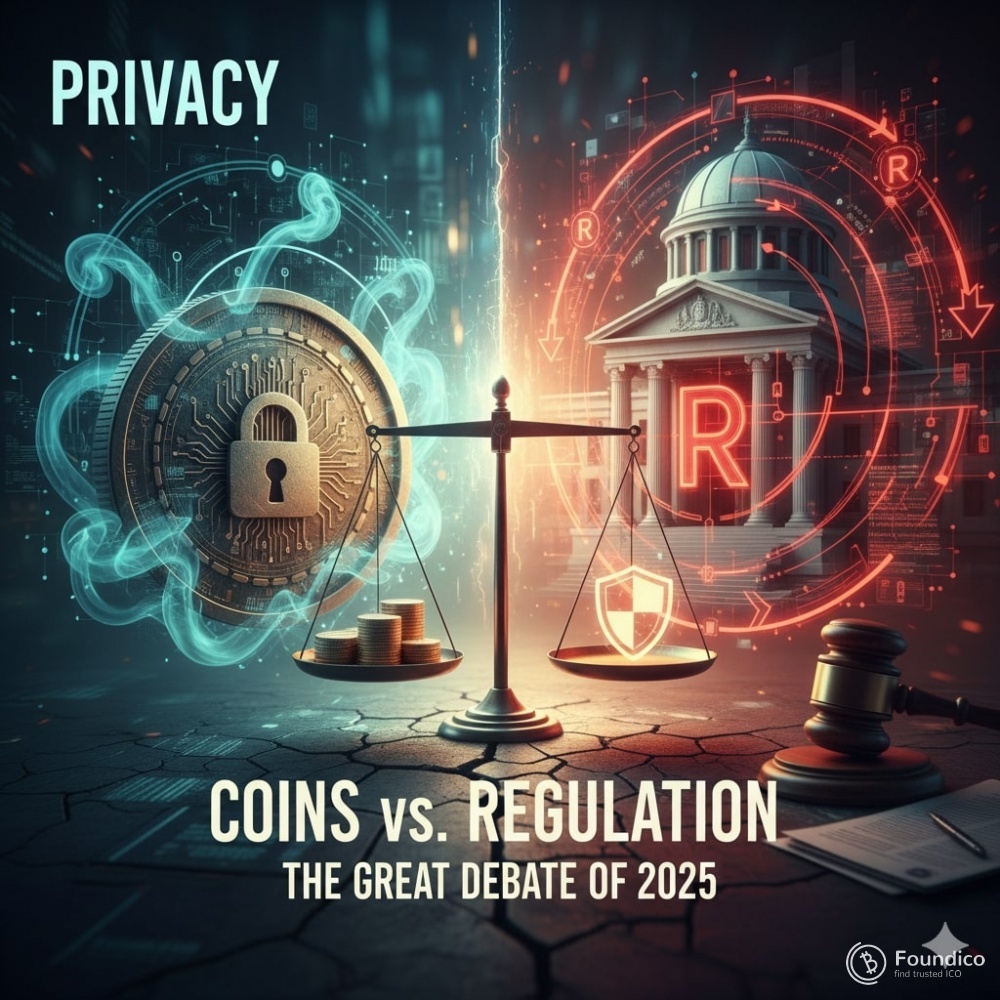Privacy Coins vs. Regulation: The Great Debate of 2025

By Dr. Pooyan Ghamari, Swiss Economist and Visionary
The Silent Revolution Beneath the Blockchain
In the neon-lit alleys of the digital economy, privacy coins have become the whispered legends of financial sovereignty. Monero, Zcash, Dash—these are not mere cryptocurrencies; they are encrypted manifestos, shielding users from the gaze of banks, governments, and corporate data harvesters. By 2025, their adoption has surged, fueled by a global backlash against mass surveillance and centralized control. Yet, this quiet rebellion now collides head-on with the iron fist of regulation, igniting the most consequential debate of our financial age.
What Are Privacy Coins, Really?
At their core, privacy coins are digital cash engineered for anonymity. Unlike Bitcoin—where every transaction is etched forever on a public ledger—privacy coins deploy cryptographic wizardry:
- Ring signatures blend your transaction with decoys.
- Zero-knowledge proofs verify truth without revealing it.
- Stealth addresses ensure no two payments trace back to one user.
The result? True fungibility. One Monero is indistinguishable from another, free from the taint of past transactions. For merchants, activists, and everyday citizens in oppressive regimes, this is liberation in code.
The Regulators Strike Back
But anonymity is a double-edged sword. Where dissidents hide, so do darknet dealers, ransomware gangs, and tax evaders. In 2025, the Global Financial Oversight Council (GFOC)—a coalition of the G20, FATF, and digital enforcers—has declared war. Their weapon: the Digital Identity Mandate.
Key provisions:
- All crypto exchanges must delist privacy coins or face sanctions.
- Wallets supporting Monero or Zcash trigger automatic regulatory alerts.
- Miners and node operators face KYC compliance or criminal liability.
The message is clear: Privacy is no longer a right—it’s a risk.
The Case for Privacy Coins
Let us speak plainly. Privacy is not the enemy of justice—it is its foundation.
- Human Rights: In authoritarian states, journalists and activists rely on privacy coins to fund resistance without fear of reprisal.
- Financial Inclusion: Billions remain unbanked. Privacy coins allow them to transact without surrendering biometric data to predatory fintech giants.
- Fungibility = Sound Money: A currency stained by its history is no currency at all. Privacy restores neutrality.
To ban privacy coins is to ban cash in the digital age.
The Regulators’ Rebuttal
Yet governments do not act without cause. In 2024 alone:
- $14 billion in ransomware payments flowed through privacy coins.
- Sanctioned regimes bypassed SWIFT using Zcash corridors.
- Terror cells funded operations via untraceable micro-donations.
Regulators argue: We do not ban privacy—we ban exploitation. Their solution? Regulated Privacy:
- Privacy-by-permission protocols (e.g., Iron Fish with optional transparency).
- Threshold disclosure: Transactions remain private—unless flagged by AI risk engines.
- Decentralized identity layers that prove humanity without revealing identity.
Switzerland’s Third Way
From the alpine strongholds of Zug and Geneva, a Swiss Model emerges. Here, privacy coins thrive under sandboxed compliance:
- Users opt into revocable anonymity.
- Exchanges deploy view keys for audits—shared only under court order.
- AI monitors flows for patterns, not individuals.
This is not compromise—it is evolution. Privacy preserved. Oversight enabled. Trust rebuilt.
The 2025 Crossroads
By year’s end, the world must choose:
- Total Ban → Driving privacy underground, empowering only the tech-savvy and the criminal.
- Total Surrender → Forcing all transactions into glass-walled ledgers, ending financial freedom.
- Intelligent Harmony → Building systems where privacy and accountability coexist.
As a Swiss economist who has long championed decentralized resilience, I cast my vote for the third path. Privacy coins are not the problem—they are the signal. They reveal a deeper truth: The future of money must be private by default, transparent by design.
The Great Debate of 2025 is not about coins. It is about who controls your financial soul. Choose wisely. The blockchain never forgets.
